This article explores the remarkable anti-inflammatory properties of Boswellia Serrata, a natural remedy that has garnered significant attention in both traditional and modern medicine. Known for its historical uses and backed by scientific research, Boswellia Serrata offers a wealth of potential health benefits that are of great interest to those seeking natural alternatives for inflammation management.
What is Boswellia Serrata?
Boswellia Serrata, often referred to as Indian frankincense, is a resin extracted from the Boswellia tree, primarily found in India and parts of Africa. This resin has been utilized for centuries in various traditional medicinal practices, particularly in Ayurvedic medicine, where it is valued for its ability to promote health and well-being.
How Does Boswellia Work in the Body?
The anti-inflammatory effects of Boswellia Serrata are primarily attributed to its active compounds, particularly boswellic acids. These compounds interact with the body by inhibiting the production of pro-inflammatory enzymes, which play a critical role in the inflammatory response. By doing so, Boswellia may help alleviate symptoms associated with chronic inflammatory conditions.
Health Benefits of Boswellia Serrata
- Arthritis Relief: Boswellia has been shown to reduce pain and improve joint function in individuals with osteoarthritis and rheumatoid arthritis.
- Respiratory Health: This natural remedy may assist in managing asthma symptoms by reducing airway inflammation.
- Digestive Support: Boswellia may also benefit those suffering from inflammatory bowel diseases by promoting gut health.
Scientific Research on Boswellia
Numerous studies have validated the efficacy of Boswellia Serrata as an anti-inflammatory agent. Clinical trials have demonstrated its potential in treating various inflammatory diseases, providing a solid foundation for its therapeutic applications.
How to Use Boswellia Serrata
Boswellia is available in various forms, including capsules, powders, and topical applications. It is essential to follow dosage recommendations based on existing research to ensure safety and effectiveness.
Potential Side Effects and Precautions
While generally safe, some individuals may experience mild side effects, such as gastrointestinal discomfort. It is advisable for pregnant women and those with specific health conditions to consult a healthcare professional before use.
Conclusion: The Future of Boswellia Serrata in Health
With its promising anti-inflammatory properties, Boswellia Serrata represents a valuable natural treatment option. Continued research will further illuminate its potential and solidify its place in complementary health practices.

What is Boswellia Serrata?
Boswellia Serrata, commonly referred to as Indian frankincense, is a tree resin that has gained recognition for its remarkable therapeutic properties. This resin is derived from the Boswellia tree, predominantly found in the arid regions of India, Africa, and the Middle East. The resin has been used for centuries in traditional medicine, particularly in Ayurvedic practices, where it is valued for its ability to promote overall health and well-being.
Botanically, Boswellia Serrata belongs to the family Burseraceae. The tree can grow up to 8 meters tall and has distinctive, thick bark and small, fragrant flowers. The resin is harvested by making incisions in the bark, allowing the sap to ooze out and harden. This resin not only has a rich aromatic profile but also contains a variety of bioactive compounds that contribute to its health benefits.
Historically, Boswellia has played a significant role in various cultures, particularly in religious ceremonies and traditional healing practices. Its use dates back to ancient civilizations, where it was often burned as incense during rituals and used in herbal remedies. The resin was highly prized and traded along ancient trade routes, which speaks to its historical significance.
- Origins: Native to regions of India, Africa, and the Middle East.
- Botanical Characteristics: Grows up to 8 meters with thick bark and fragrant flowers.
- Traditional Uses: Integral to Ayurvedic medicine and ancient rituals.
In modern times, scientific research has begun to validate many of the traditional claims associated with Boswellia Serrata. Studies have highlighted its potential anti-inflammatory and analgesic properties, making it a subject of interest for those seeking natural alternatives for managing various health conditions.
In conclusion, Boswellia Serrata is not only a fascinating botanical specimen but also a valuable component of traditional medicine with a promising future in health and wellness.
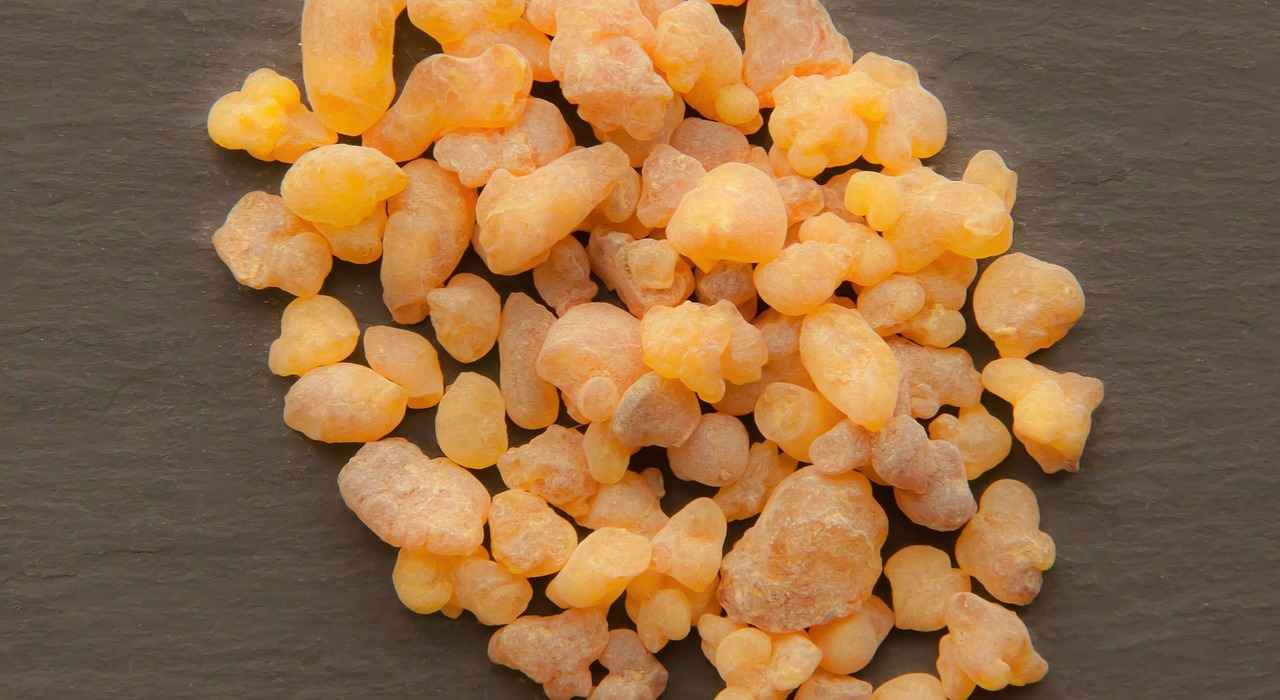
How Does Boswellia Work in the Body?
Understanding the biochemical mechanisms of Boswellia’s anti-inflammatory effects is crucial. This section delves into how Boswellia Serrata, particularly its active compounds known as boswellic acids, interacts with the human body to mitigate inflammation.
Boswellia Serrata, commonly referred to as Indian frankincense, has been utilized in traditional medicine for centuries due to its remarkable healing properties. The primary active compounds in this resin, boswellic acids, are responsible for its therapeutic effects. These acids work by inhibiting specific enzymes that contribute to the inflammatory process, thereby reducing swelling and pain.
One of the significant mechanisms through which boswellic acids exert their anti-inflammatory effects is by blocking the production of pro-inflammatory mediators such as leukotrienes and prostaglandins. These substances play a key role in the inflammatory response, and their inhibition leads to decreased inflammation and pain. Additionally, boswellic acids are known to enhance blood circulation, which can further aid in the healing process.
Research has shown that boswellic acids also possess antioxidant properties, which help to combat oxidative stress in the body. Oxidative stress is a condition characterized by excessive free radicals, leading to cell damage and chronic inflammation. By neutralizing these free radicals, boswellic acids contribute to a healthier inflammatory response.
Furthermore, studies indicate that boswellic acids may modulate immune system activity, promoting a balanced immune response. This is particularly beneficial for individuals suffering from chronic inflammatory conditions such as arthritis, where inflammation is persistent and can lead to tissue damage.
In summary, the anti-inflammatory effects of Boswellia Serrata are primarily attributed to its active compounds, particularly boswellic acids, which work through multiple mechanisms to reduce inflammation and promote healing. Understanding these biochemical interactions is essential for harnessing the full potential of Boswellia as a natural remedy for inflammatory conditions.
Active Compounds in Boswellia
Boswellia Serrata, a revered natural remedy, is particularly noted for its potent active compounds known as boswellic acids. These compounds are primarily responsible for the resin’s remarkable anti-inflammatory properties, making it a focal point in both traditional and modern medicine.
The chemical structure of boswellic acids consists of a pentacyclic triterpene skeleton, which is crucial for their biological activity. This unique structure enables them to interact effectively with various cellular pathways in the body, leading to a reduction in inflammation. Research indicates that boswellic acids can inhibit the activity of certain enzymes, such as 5-lipoxygenase (5-LOX), which plays a significant role in the inflammatory response. By blocking this enzyme, boswellic acids help to prevent the formation of inflammatory mediators, thereby alleviating symptoms associated with chronic inflammatory conditions.
There are several types of boswellic acids found in Boswellia Serrata, including acetyl-11-keto-β-boswellic acid (AKBA) and 11-keto-β-boswellic acid (KBA). Each type exhibits unique properties and varying degrees of effectiveness in combating inflammation. For instance, AKBA has been highlighted in studies for its superior ability to inhibit pro-inflammatory cytokines, making it particularly valuable in the treatment of conditions such as arthritis and asthma.
Furthermore, the synergistic effect of these boswellic acids enhances the overall anti-inflammatory response, providing a multi-faceted approach to managing inflammation. This is particularly beneficial for individuals seeking natural alternatives to conventional anti-inflammatory medications.
In summary, the active compounds in Boswellia Serrata, primarily the boswellic acids, play a pivotal role in its anti-inflammatory effects. Understanding their chemical structure and mechanisms of action not only highlights the potential health benefits of Boswellia but also underscores its significance as a natural therapeutic agent.
Types of Boswellic Acids
Boswellia Serrata, a revered natural remedy, contains several types of boswellic acids, each exhibiting unique properties and benefits in the fight against inflammation. Understanding these different types can help individuals choose the most effective form for their health needs.
- Alpha-Boswellic Acid: This type is known for its potent anti-inflammatory effects. It works by inhibiting the activity of pro-inflammatory enzymes, making it particularly beneficial for conditions such as arthritis and asthma.
- Beta-Boswellic Acid: Similar to alpha-boswellic acid, beta-boswellic acid plays a crucial role in reducing inflammation. It has also been shown to enhance blood circulation, which can aid in the healing process.
- Acetyl-Boswellic Acid: This variant is often highlighted for its ability to penetrate cell membranes more effectively. Its anti-inflammatory properties make it a strong candidate for managing chronic inflammatory diseases.
- 11-Keto-Boswellic Acid: Recognized for its unique mechanism, this acid has been studied for its potential to inhibit tumor growth and provide additional anti-cancer benefits, in addition to its anti-inflammatory actions.
- 3-O-Acetyl-Boswellic Acid: This type is particularly noted for its ability to reduce pain and swelling, making it useful for those suffering from joint pain and related conditions.
Each type of boswellic acid contributes to the overall effectiveness of Boswellia Serrata in combating inflammation. By understanding the specific benefits and mechanisms of these acids, individuals can make informed decisions about incorporating Boswellia into their health regimen.
In conclusion, the diverse array of boswellic acids found in Boswellia Serrata offers a multifaceted approach to managing inflammation. Whether one is dealing with chronic pain, respiratory issues, or other inflammatory conditions, these compounds provide a natural alternative to conventional treatments.
Mechanisms of Action
The anti-inflammatory properties of Boswellia Serrata can be attributed primarily to its active compounds, known as boswellic acids. These acids play a crucial role in managing inflammation by interacting with specific enzymes and pathways in the body. This section delves into how boswellic acids inhibit pro-inflammatory enzymes, providing insights into their therapeutic potential for chronic inflammatory conditions.
Boswellic acids are known to selectively inhibit the activity of enzymes such as 5-lipoxygenase (5-LOX), which is responsible for the production of leukotrienes—compounds that contribute to inflammation and pain. By blocking 5-LOX, boswellic acids help reduce the synthesis of these inflammatory mediators, thereby alleviating symptoms associated with inflammatory diseases.
Moreover, research indicates that boswellic acids may also modulate the production of pro-inflammatory cytokines, which are signaling molecules that facilitate the inflammatory response. By downregulating these cytokines, boswellic acids can help in restoring balance to the immune system, making them beneficial for conditions such as arthritis and asthma.
In addition to their enzyme-inhibiting capabilities, boswellic acids exhibit antioxidant properties, which can further support their anti-inflammatory effects. By scavenging free radicals, they help mitigate oxidative stress—a condition that can exacerbate inflammation and lead to chronic diseases.
Overall, the mechanisms through which boswellic acids operate highlight their potential as a natural alternative for managing chronic inflammatory conditions. With ongoing research, the understanding of these mechanisms continues to expand, paving the way for innovative therapeutic applications.
Health Benefits of Boswellia Serrata
Boswellia Serrata is not only celebrated for its remarkable anti-inflammatory properties but also for its potential health benefits in various conditions. This section explores how this natural remedy may assist in managing arthritis, asthma, and digestive issues.
Many individuals suffer from arthritis, a debilitating joint condition characterized by inflammation and pain. Research suggests that Boswellia Serrata can help alleviate these symptoms. The active compounds, particularly boswellic acids, have been shown to inhibit the production of inflammatory mediators, leading to reduced joint swelling and improved mobility. Clinical studies indicate that patients using Boswellia supplements often report decreased pain levels and enhanced joint function.
In addition to its benefits for arthritis, Boswellia Serrata may play a role in managing asthma. The resin has been linked to improved respiratory function due to its anti-inflammatory effects on the bronchial tubes. By reducing inflammation in the airways, Boswellia can help alleviate asthma symptoms and improve overall lung health. Some studies have demonstrated that patients with asthma experience fewer attacks and reduced reliance on conventional medication when incorporating Boswellia into their treatment regimen.
Moreover, Boswellia Serrata shows promise in addressing various digestive issues. Its anti-inflammatory properties may help soothe conditions such as irritable bowel syndrome (IBS) and inflammatory bowel diseases like Crohn’s disease and ulcerative colitis. By reducing gut inflammation, Boswellia can contribute to improved digestive health and comfort.
In conclusion, the potential health benefits of Boswellia Serrata extend beyond simple inflammation reduction. Its roles in managing arthritis, asthma, and digestive issues highlight its versatility as a natural remedy. As research continues to unfold, Boswellia may become an integral part of holistic health strategies for many individuals.
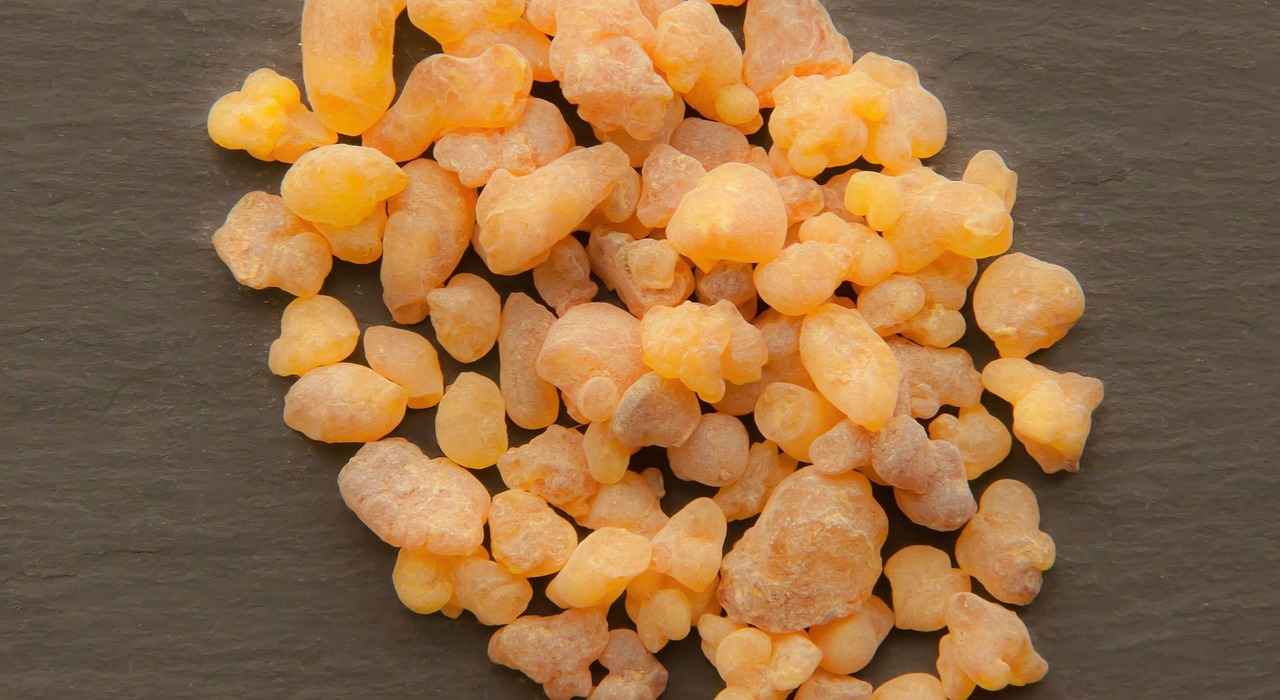
Scientific Research on Boswellia
Numerous studies have investigated the efficacy of Boswellia Serrata, revealing its potential as a powerful anti-inflammatory agent. This section summarizes key research findings that support its use, providing a clearer understanding of how this natural remedy can benefit health.
Research has shown that Boswellia Serrata contains compounds known as boswellic acids, which play a significant role in its anti-inflammatory properties. A study published in the Journal of Ethnopharmacology demonstrated that these acids inhibit the production of pro-inflammatory enzymes, effectively reducing inflammation in conditions such as arthritis and asthma.
| Study | Findings | Conclusion |
|---|---|---|
| Journal of Ethnopharmacology (2015) | Boswellic acids reduce inflammation markers. | Supports Boswellia’s use in treating inflammatory diseases. |
| Clinical Rheumatology (2016) | Improvement in joint function and pain relief. | Effective for osteoarthritis management. |
| Phytotherapy Research (2017) | Reduction in asthma symptoms. | Promising adjunct therapy for asthma patients. |
Moreover, comparative studies have highlighted Boswellia’s unique advantages over conventional anti-inflammatory medications. For instance, a study in the International Journal of Medical Sciences noted that Boswellia offers similar benefits without the side effects commonly associated with non-steroidal anti-inflammatory drugs (NSAIDs).
In conclusion, the body of research surrounding Boswellia Serrata strongly supports its therapeutic potential as an anti-inflammatory agent. As more studies emerge, the understanding of its mechanisms and benefits continues to evolve, paving the way for its integration into holistic health approaches.
Clinical Trials and Findings
This section delves into the extensive body of research surrounding Boswellia Serrata, particularly focusing on its efficacy in treating various inflammatory diseases. Numerous clinical trials have been conducted to evaluate the therapeutic potential of this natural remedy, and the findings consistently underscore its benefits.
One landmark study published in the Journal of Ethnopharmacology involved patients suffering from osteoarthritis. The trial demonstrated that participants who received Boswellia extract experienced a significant reduction in pain and improvement in joint function compared to those receiving a placebo. This research highlights the resin’s ability to modulate inflammatory pathways effectively.
Another pivotal study assessed the effects of Boswellia on patients with rheumatoid arthritis. Results indicated that those treated with Boswellia exhibited a marked decrease in inflammatory markers, such as C-reactive protein (CRP), and reported lower levels of pain. This suggests that Boswellia not only alleviates symptoms but may also address the underlying inflammatory processes.
| Study | Condition | Findings |
|---|---|---|
| Journal of Ethnopharmacology | Osteoarthritis | Significant reduction in pain and improved joint function |
| Clinical Rheumatology | Rheumatoid Arthritis | Decreased inflammatory markers and reduced pain levels |
Furthermore, a meta-analysis of multiple studies reinforced these findings, revealing that Boswellia is comparable to conventional anti-inflammatory medications, with fewer side effects. This positions Boswellia as a viable alternative for those seeking natural treatment options.
In summary, the clinical trials and research surrounding Boswellia Serrata provide compelling evidence of its effectiveness in managing inflammatory diseases. Continued exploration of its therapeutic potential is essential for integrating Boswellia into mainstream medical practices.
Comparative Studies
In the realm of anti-inflammatory treatments, Boswellia Serrata has garnered significant attention for its unique properties and effectiveness. When compared to conventional anti-inflammatory agents, such as non-steroidal anti-inflammatory drugs (NSAIDs) like ibuprofen and naproxen, Boswellia stands out due to its natural origin and fewer side effects.
Research has demonstrated that Boswellia’s active compounds, particularly boswellic acids, play a crucial role in modulating inflammatory responses. Unlike traditional medications that often target symptoms, Boswellia works at the molecular level to inhibit pro-inflammatory enzymes, thereby addressing the root cause of inflammation.
| Feature | Boswellia Serrata | Conventional NSAIDs |
|---|---|---|
| Source | Natural resin | Synthetic chemicals |
| Mechanism of Action | Inhibits pro-inflammatory enzymes | Blocks pain signals |
| Side Effects | Minimal | Gastrointestinal issues, cardiovascular risks |
| Usage | Long-term management of inflammation | Short-term relief |
Moreover, clinical trials have indicated that Boswellia may be as effective as NSAIDs for certain conditions, such as osteoarthritis and rheumatoid arthritis. Patients often report improved mobility and reduced pain without the adverse effects commonly associated with traditional medications. This makes Boswellia a compelling option for individuals seeking natural alternatives.
In summary, comparative studies highlight Boswellia Serrata’s unique advantages over conventional anti-inflammatory agents. Its natural composition, effective mechanism of action, and minimal side effects make it a valuable addition to the arsenal of treatments for chronic inflammatory conditions. As research continues to evolve, Boswellia’s role in integrative health care is likely to expand, offering hope for those seeking safer, effective solutions.
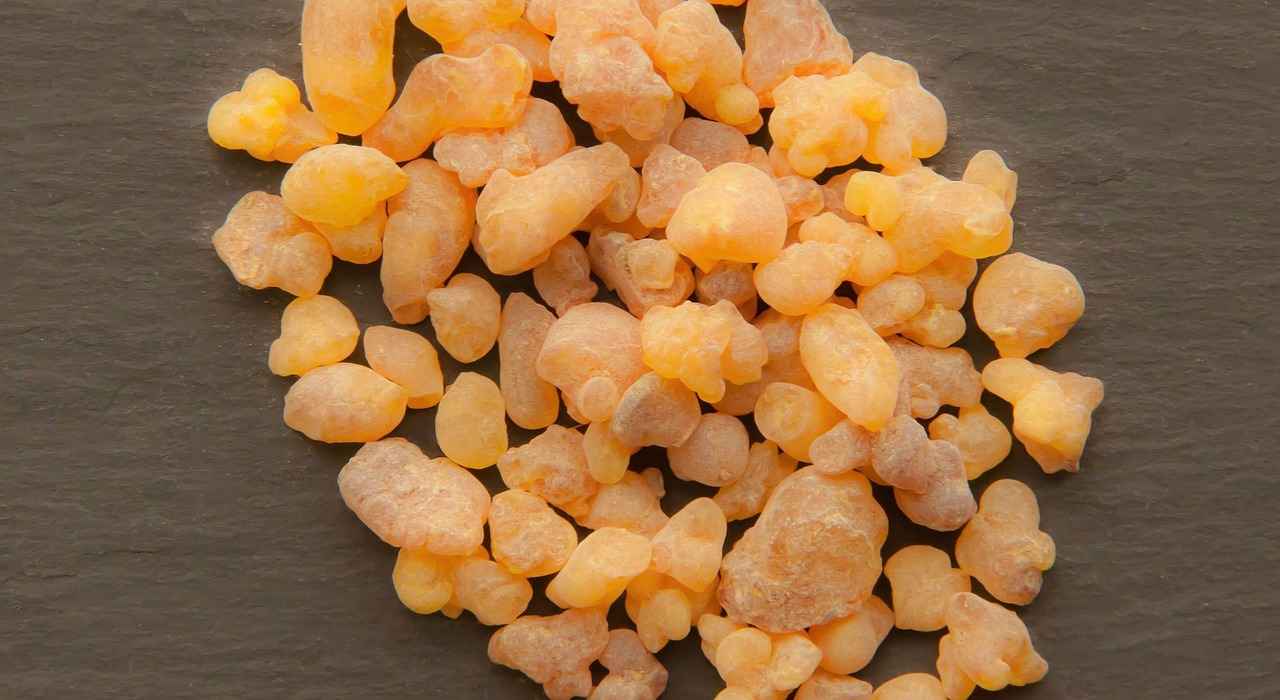
How to Use Boswellia Serrata
For those looking to enhance their wellness routine with Boswellia Serrata, understanding the various forms of supplementation, appropriate dosage, and potential side effects is essential. This section serves as a comprehensive guide to help you navigate the world of Boswellia.
Forms of Boswellia Supplements
- Capsules: These are one of the most popular forms, providing a convenient way to consume Boswellia. They often contain standardized extracts, ensuring consistent dosages.
- Powders: Boswellia powder can be mixed into smoothies or foods, allowing for versatile consumption. However, measuring the right dose can be a challenge.
- Topical Applications: Creams and ointments containing Boswellia are available for localized relief, particularly for joint pain and inflammation.
Dosage Recommendations
Determining the right dosage is crucial for maximizing the benefits of Boswellia while minimizing risks. Generally, the recommended dosage ranges from 300 mg to 500 mg of Boswellia extract taken two to three times daily. However, it is advisable to consult with a healthcare professional for personalized guidance, especially if you are pregnant, nursing, or taking other medications.
Potential Side Effects and Precautions
While Boswellia is generally safe for most people, some may experience mild side effects, including:
- Gastrointestinal issues: Such as nausea or diarrhea.
- Allergic reactions: In rare cases, individuals may have an allergic response.
It is recommended that individuals with known allergies to Boswellia or those on anticoagulant medications consult their healthcare provider before starting supplementation.
Conclusion
Incorporating Boswellia Serrata into your wellness routine can offer numerous benefits, particularly for managing inflammation. By understanding the various forms, appropriate dosages, and potential side effects, you can make informed decisions that align with your health goals.
Forms of Boswellia Supplements
Boswellia Serrata is gaining popularity as a natural remedy for inflammation and various health conditions. As more individuals seek to incorporate this powerful resin into their wellness routines, understanding the different available is essential. This section will explore the advantages and disadvantages of each method of consumption, helping you make an informed choice.
| Form | Pros | Cons |
|---|---|---|
| Capsules |
|
|
| Powders |
|
|
| Topical Applications |
|
|
In conclusion, the choice of Boswellia supplement form depends on personal preferences and specific health goals. Capsules offer convenience, powders provide versatility and potency, while topical applications allow for targeted relief. Understanding these differences can help you choose the most suitable option for your needs.
Dosage Recommendations
When considering the use of Boswellia Serrata supplements, it is essential to determine the appropriate dosage to ensure both effectiveness and safety. Research has provided various guidelines that can help individuals make informed decisions regarding their Boswellia intake.
Generally, the recommended dosage of Boswellia ranges from 300 mg to 500 mg taken two to three times per day. However, the exact dosage can vary based on several factors, including:
- Form of Supplement: Boswellia is available in various formulations, including capsules, powders, and topical applications. Each form may have different recommended dosages.
- Health Condition: The dosage may differ based on the specific health issue being addressed, such as arthritis or asthma.
- Individual Factors: Age, weight, and overall health can influence how Boswellia is metabolized in the body.
It is advisable to start with a lower dose to assess tolerance and gradually increase it as needed. Consulting with a healthcare professional before beginning any new supplement regimen is crucial, particularly for individuals with pre-existing conditions or those taking other medications.
Moreover, some studies suggest that taking Boswellia with food may enhance its absorption and effectiveness. Therefore, it is recommended to consume it alongside meals for optimal results.
In summary, while Boswellia Serrata can offer significant health benefits, determining the right dosage is vital. By adhering to the recommended guidelines and considering individual needs, users can maximize the therapeutic potential of this natural supplement.
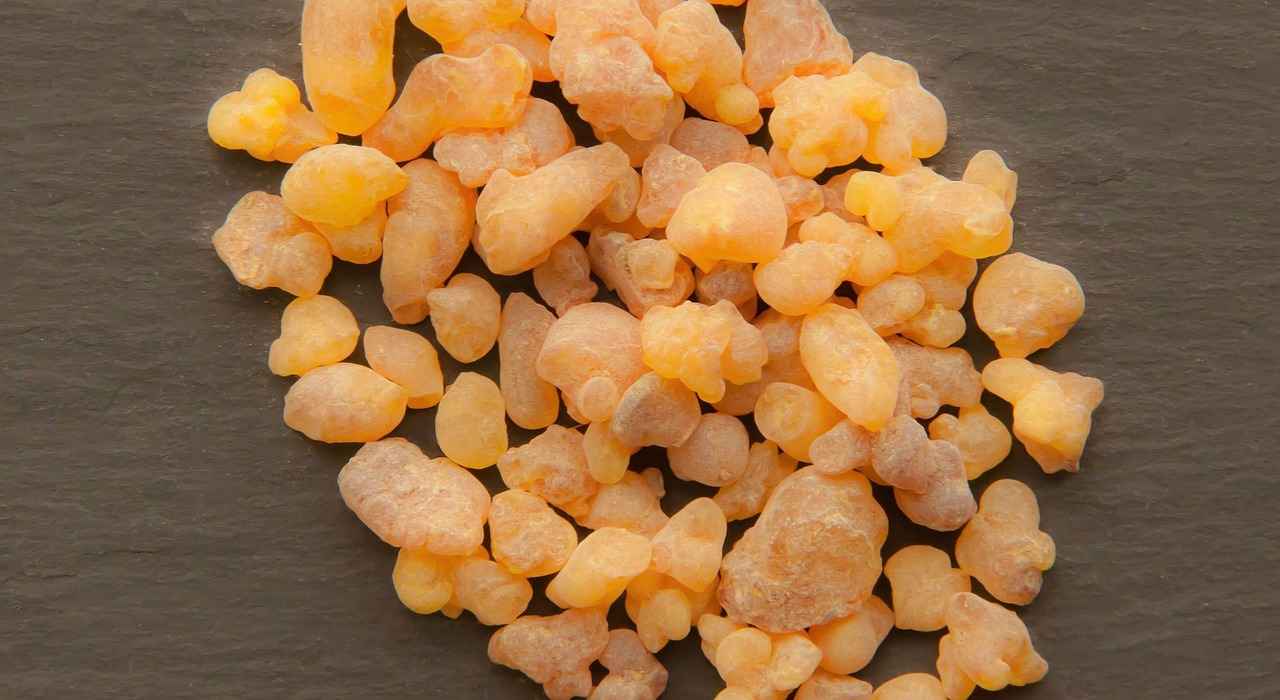
Potential Side Effects and Precautions
While Boswellia Serrata is generally regarded as safe for most individuals, it is essential to be aware that some users may experience side effects. Understanding these potential adverse reactions can help users make informed decisions about incorporating this natural remedy into their health regimen.
Among the most commonly reported side effects are:
- Gastrointestinal Issues: Some individuals may experience mild digestive disturbances such as nausea, diarrhea, or stomach upset.
- Allergic Reactions: Although rare, some users may develop skin rashes or other allergic responses.
- Headaches: A few individuals have reported experiencing headaches after using Boswellia supplements.
It is advisable for individuals to start with a lower dosage to assess their tolerance and gradually increase it as needed. This approach can help minimize the risk of experiencing adverse effects.
Who Should Avoid Boswellia?
Certain populations should exercise caution or consult a healthcare professional before using Boswellia:
- Pregnant or Nursing Women: Safety during pregnancy and lactation has not been well established.
- Individuals with Allergies: Those with known sensitivities to tree resins or related substances should avoid Boswellia.
- People on Anticoagulant Therapy: Boswellia may have blood-thinning effects, which could interact with anticoagulant medications.
In conclusion, while Boswellia Serrata offers potential health benefits, being aware of its possible side effects and understanding who should avoid it is crucial. Always consult with a healthcare provider before starting any new supplement, especially if you have underlying health conditions or are taking other medications.
Common Side Effects
When considering the use of Boswellia Serrata as a natural supplement, it is essential to be aware of the potential side effects that may arise. While many individuals tolerate Boswellia well, some may experience adverse reactions. Below, we outline the most frequently reported side effects to help users make informed decisions.
- Gastrointestinal Issues: Some users report experiencing mild digestive disturbances, including nausea, diarrhea, or stomach cramps. These symptoms may occur, especially when starting supplementation or increasing the dosage.
- Allergic Reactions: Although rare, allergic reactions can occur. Symptoms may include skin rashes, itching, or swelling. Individuals with known sensitivities to tree resins should exercise caution.
- Headaches: Some users have reported experiencing headaches after beginning Boswellia supplementation. This may be linked to changes in inflammation levels or dosage adjustments.
- Fatigue: A few individuals have noted feelings of fatigue or lethargy. It is important to monitor energy levels and consult with a healthcare provider if this persists.
- Interactions with Medications: Boswellia may interact with certain medications, particularly those that affect blood clotting. Users on anticoagulants should consult their healthcare provider before starting Boswellia.
It is advisable to start with a lower dosage and gradually increase it to assess tolerance. Keeping a journal of any side effects experienced can also be beneficial for discussions with healthcare professionals. Always consult with a healthcare provider before beginning any new supplement, especially for individuals with pre-existing conditions or those who are pregnant or breastfeeding.
By being aware of these potential side effects, users can better navigate their supplementation journey with Boswellia Serrata and maximize its benefits while minimizing risks.
Who Should Avoid Boswellia?
Boswellia Serrata, while widely recognized for its anti-inflammatory properties, is not suitable for everyone. Certain populations may need to exercise caution or avoid its use altogether. Understanding these groups is crucial for safe supplementation.
- Pregnant and Nursing Women: Pregnant individuals should avoid Boswellia due to potential risks to fetal development. Similarly, nursing mothers are advised to consult a healthcare professional before using Boswellia, as its effects on breast milk are not well-studied.
- Individuals with Allergies: Those who have known allergies to plants in the Burseraceae family (which includes Boswellia) should steer clear of this supplement to prevent allergic reactions.
- People on Blood Thinners: Boswellia may have blood-thinning effects, which could interfere with anticoagulant medications. Patients on blood thinners should consult their healthcare provider before starting Boswellia.
- Individuals with Stomach Issues: Boswellia can sometimes cause gastrointestinal discomfort. Those with pre-existing stomach conditions, such as ulcers or IBS, should approach Boswellia with caution.
- Children: The safety of Boswellia for children hasn’t been thoroughly researched. Parents should consult a pediatrician before considering Boswellia for their children.
In conclusion, while Boswellia Serrata offers numerous health benefits, it is essential for certain populations to either avoid it or seek advice from a healthcare professional. This precaution helps ensure safety and efficacy in supplementation.
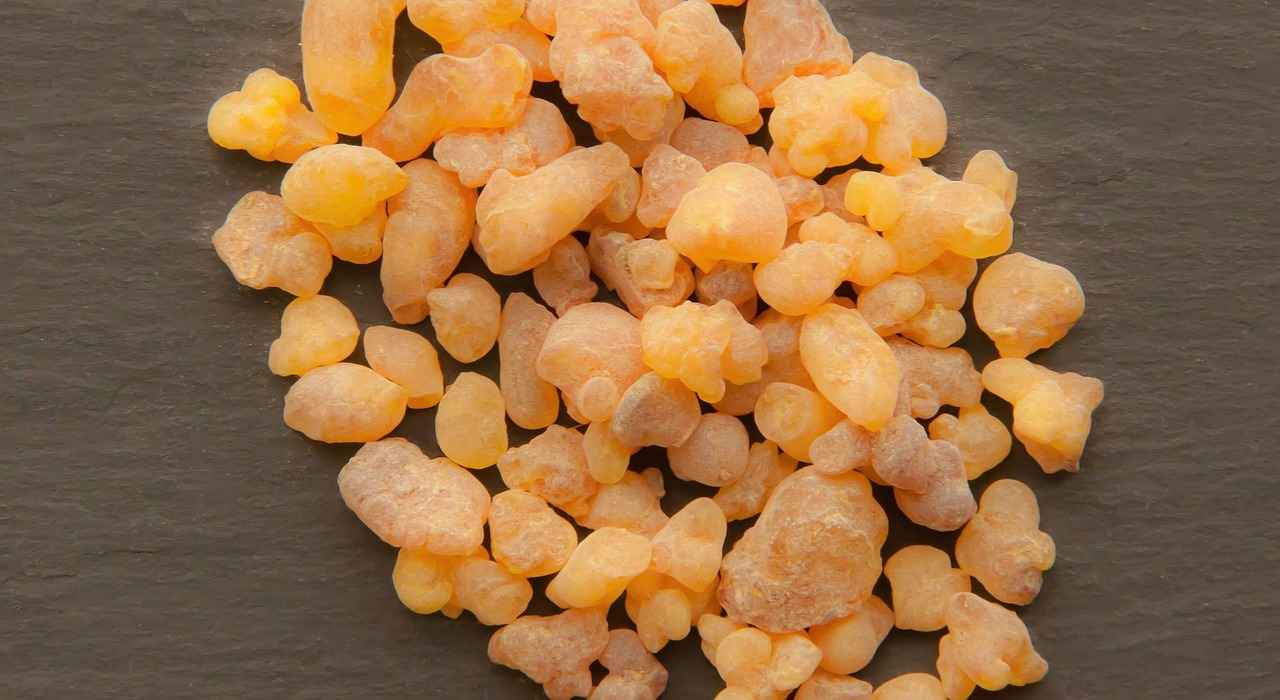
Conclusion: The Future of Boswellia Serrata in Health
In recent years, Boswellia Serrata, commonly referred to as Indian frankincense, has garnered significant attention for its remarkable anti-inflammatory properties. This ancient resin has been utilized for centuries in traditional medicine, but modern scientific research is beginning to uncover its full potential in the realm of health and wellness.
The active compounds in Boswellia, particularly boswellic acids, have demonstrated the ability to inhibit pro-inflammatory enzymes, making them a promising alternative to conventional anti-inflammatory medications. Ongoing studies continue to explore these mechanisms, revealing how Boswellia can effectively manage chronic conditions such as arthritis, asthma, and even digestive disorders.
Moreover, clinical trials have provided substantial evidence supporting the efficacy of Boswellia as a natural treatment option. For instance, research has shown that individuals suffering from osteoarthritis experienced reduced pain and improved joint function after supplementing with Boswellia extracts. Such findings highlight the resin’s potential as a safe and effective alternative for those seeking relief from inflammation without the side effects often associated with pharmaceutical drugs.
As interest in natural remedies continues to rise, the future applications of Boswellia Serrata appear promising. Further research is essential to fully understand its benefits and to establish standardized dosages for various health conditions. The importance of ongoing investigations cannot be overstated, as they will pave the way for integrating Boswellia into conventional treatment protocols.
In conclusion, the potential of Boswellia Serrata as a natural anti-inflammatory treatment is supported by both historical usage and modern scientific inquiry. As we look ahead, continued research will undoubtedly reveal more about this remarkable resin and its role in promoting health and well-being.







